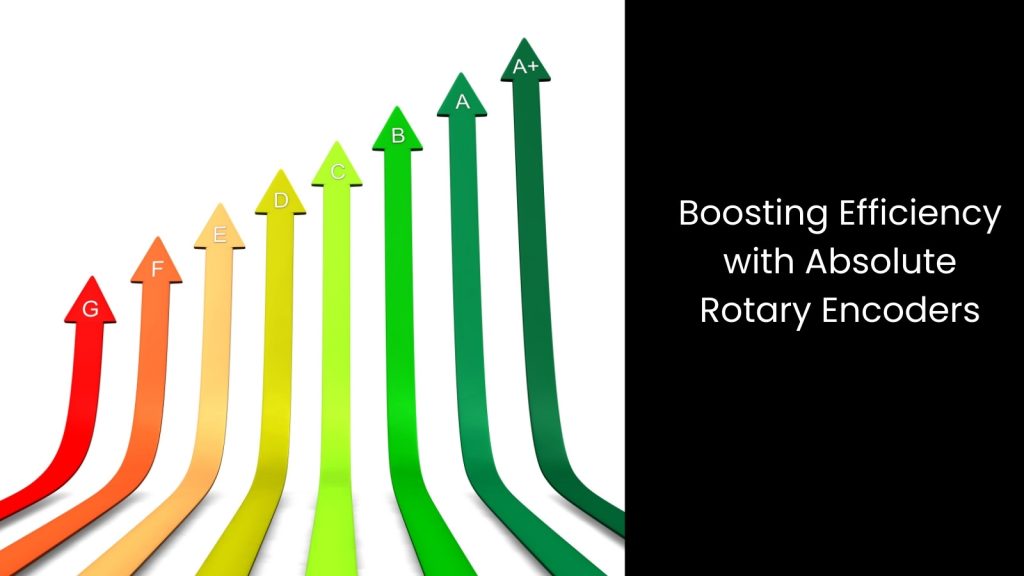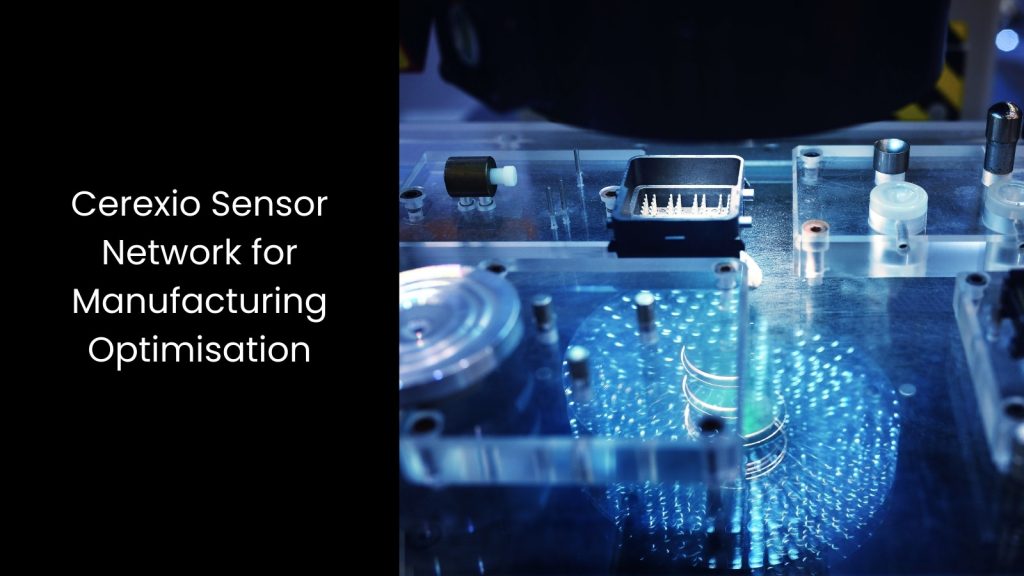Do you know that more than 25 types of industrial sensors, including mechanical encoders and shaft encoders are in use across Singapore’s rapidly evolving manufacturing landscape today?
If you closely look into each sensor, you can see that, from the basic mechanical encoder for simple counting tasks to advanced absolute rotary encoders for high-precision movement, plays a unique role in optimising local manufacturing processes.
Among these, the absolute rotary encoder stands out as a ‘linchpin of innovation’, especially in high-mix, low-volume environments where Singaporean manufacturers require both adaptability and reliability.
Imagine always knowing, without interruption or uncertainty, the exact angular position of every key motion component on your shop floor. This is not just possible but routine with absolute rotary encoders, delivering high-resolution feedback, robust industrial standards compliance (IP67 and beyond), and real-time connectivity to ensure operational continuity across diverse Singaporean industrial facilities.
This article will cover the concept of an ‘Absolute Rotary Encoder’ and why the Singapore manufacturing ecosystem, with its bespoke digitalisation needs, has embraced this advanced shaft encoder technology.
We will explore
- What is an Absolute Rotary Encoder?
- What Makes Absolute Rotary Encoders Essential for Singapore?
- How Do Absolute Rotary Encoders Enable Smart Manufacturing?
- What Are the Key Benefits of Absolute Rotary Encoders for Singapore Manufacturing?
- What Interfaces and Connectivity Options Do Absolute Rotary Encoders Offer?
- How Have Absolute Encoders Improved Predictive Maintenance in Singapore?
- How to Choose the Right Sensing Technology for Singapore’s Needs?
- What Are the Installation Considerations for Hollow Shaft vs. Solid Shaft Encoders?
- How Do Absolute Rotary Encoders Boost Efficiency in Singapore?
- How Does the Cerexio Sensor Network Optimise Manufacturing in Singapore?
- FAQ – Absolute Rotary Encoder
What is an Absolute Rotary Encoder?
An absolute rotary encoder is an advanced sensor device that provides a unique digital value for every shaft angle, continuously tracking the exact position (as opposed to incremental encoders, which only detect position change).
What Makes Absolute Rotary Encoders Essential for Singapore?

Let us chart the course forward by identifying how this sensor type stands apart from the rest, including mechanical and shaft encoders, especially in local facilities integrating digital manufacturing strategies.
- The most promising factor is that this enables ‘true position’ feedback, which persists even after power loss.
- So, where does its singularity lie? Unlike generic sensors, these encoders can deliver high resolutions ranging from 10-bit to 25-bit (up to 33,554,432 discrete positions per revolution), with industry-leading accuracy sometimes better than 10 arc seconds, perfect for Singapore’s precision-driven sectors like electronics, semiconductor, and aerospace manufacturing.
- Little is known of the fact that, for seamless connection with MES and automation platforms common in Singapore, absolute rotary encoders support robust protocols such as SSI (Synchronous Serial Interface), BiSS (Bidirectional Synchronous Serial Interface), and CANopen, ensuring real-time, error-free data integration.
- Many encoders are engineered to industrial protection standards, including IP67 ingress protection, IEC 60068-2 shock/vibration standards, and thermal ratings exceeding 85°C—critical for local manufacturers navigating Singapore’s hot, humid environments and rigorous uptime demands.
- Whether you use single-turn encoders for robotic arms or multiturn devices for automated conveyors, their advanced electronics and robust build enable flawless operation in high-mix manufacturing contexts.
How Do Absolute Rotary Encoders Enable Smart Manufacturing?
If you are in the industrial picture, you may be aware that, in Singapore’s advanced manufacturing facilities, absolute rotary encoders are integral to building digital twins, streamlining MES integration, and supporting predictive maintenance, all while delivering real-time position data for every axis of movement.
Now we move on to explore the typical use cases:
- CNC Machine Tools: High-accuracy encoder feedback (20-bit or greater) ensures micron-level part placement and flawless quality assurance.
- Robotics: Direct integration with SSI and CANopen protocols provides real-time robot joint data, improving flexibility in low-volume, high-variety production.
- Automated Storage and Retrieval Systems (AS/RS): Multi-turn absolute encoders are there to track bin positions with error-free repeatability, reducing downtime.
- Smart Conveyors: Real-time motion feedback, even across power cycles, supports lean manufacturing practices common in local factories.
All these examples are increasingly present in Singapore’s push for Industry 4.0, making the right encoder choice a competitive differentiator.
What Are the Key Benefits of Absolute Rotary Encoders for Singapore Manufacturing?

How Durable Are Absolute Rotary Encoders in Singapore’s Conditions?
When your Singapore-based manufacturing company procures sensors and encoders, you expect them to last. However, the real challenge begins when most sensitive devices fail once exposed to harsh local environments. We are talking about high humidity, dust, and continual vibration here.
Let us discover the most top-tier absolute rotary encoders’ features:
- Did you know that it is rugged housing compliant with IP67-rated protection? It is built to withstand water, oil, dust, and aggressive cleaning regimens in local facilities.
- The best part is that the latter obtains the certification to IEC 60068-2 shock and vibration standards, guaranteeing reliable operation under constant machine movement.
- It is enriched with temperature resilience for year-round use in both air-conditioned and non-climate-controlled Singapore factories.
You may understand that such technical resilience ensures consistent high-accuracy position reporting, a must for minimising production errors and equipment downtime.
What Is Multiturn Capability and Why Does It Matter?
Well, take note of this remarkable insight! Many Singaporean manufacturing processes, like automated assembly or semiconductor wafer handling, require not only precise angular measurement, but also memory of total shaft revolutions.
Advanced multiturn absolute encoders track both, which is quite fascinating:
- The angle within each shaft rotation, and
- The total number of complete revolutions (sometimes over 4,096 turns) without controller intervention.
Crucially, high-end multiturn encoders in Singapore often include battery-free gear-driven counting mechanisms aligned with industry safety and environmental standards. That way, machines retain position state through both power loss and complex process cycles, with accuracy and efficiency validated in local high-mix, low-volume scenarios.
How Does Non-Volatile Memory Improve Encoder Performance?
What we witness every single day is that production stops, unplanned maintenance, and power failures can cost Singaporean factories thousands per minute.
The curtain falls when absolute rotary encoders with non-volatile memory address this by:
- Instantly recalling shaft position after restart, zero recalibration, zero ‘homing’, and no process setup delays.
- Providing error-proof continuity compatible with local OEMs’ drive for lean production, boosting mean time between failure (MTBF).
- Enabling “plug-and-play” machine modules across the island’s distributed manufacturing networks.
With non-volatile memory, accuracy and productivity are preserved—even in the dynamic production environment of Singapore.
How Precise Are Absolute Rotary Encoders?
Do you know these encoders can deliver continuous angular feedback accurate to better than ±10 arc seconds and resolutions exceeding 16- or even 25-bit (translating to sub-micron motion steps)? In Singapore’s automated lines, particularly in electronics, med-tech, and aerospace, such precision results in:
- Consistently high product quality, even across rapidly changing SKUs and batch sizes.
- Fewer rework cycles and virtually eliminated positioning errors.
- Faster, more reliable setups and changeovers compatible with high-mix local manufacturing.
The encoder’s robust build and accuracy over time make it a reliable choice for Industry 4.0 factories in Singapore. As anticipated, was it not?
What Interfaces and Connectivity Options Do Absolute Rotary Encoders Offer?
If we look into the most important requirement, absolute rotary encoders deployed in Singapore must support digital protocols that seamlessly connect with Manufacturing Execution Systems (MES) and plant-wide automation. Leading models offer:
- SSI (Synchronous Serial Interface): It is widely used for robust point-to-point digital communication with PLCs and motion controllers.
- BiSS: This enables open-source, real-time transmission for fast-moving automation lines in local factories.
- CANopen: It ensures networked communication with distributed IO for flexible, intelligent manufacturing setups, essential for Singapore’s modular production lines.
It is absolutely clear that this breadth of connectivity maximises compatibility with both legacy and next-generation smart manufacturing infrastructure.
How Have Absolute Encoders Improved Predictive Maintenance in Singapore?
Throughout all these years, we witnessed that Singapore’s high-mix, low-volume manufacturers face unique challenges: It all starts with constant production changeovers, strict uptime requirements, and goes beyond the need for predictive maintenance to avoid expensive downtime.
However, in 2023, a local precision engineering firm implemented Cerexio’s absolute rotary encoder solution across its modular automated assembly lines. Not to mention that the result was just phenomenal.
Here we look at the Results:
- Its enhanced encoder integration (with real-time SSI and CANopen data feeds) enabled seamless batch changeovers and item-level traceability.
- Process analytics powered by encoder data directly supported predictive maintenance initiatives, resulting in an 18% reduction in unplanned downtime within one year.
- The facility reported improved product quality, less scrap, and higher on-time delivery all validated in Singapore’s demanding, fast-moving manufacturing sector.
This success is clear proof that demonstrates how encoder-driven digital transformation accelerates competitiveness in Singapore’s advanced manufacturing ecosystem.
How to Choose the Right Sensing Technology for Singapore’s Needs?
Absolute rotary encoders come in two core varieties, each suited to Singapore’s diverse industrial environments:
- Optical Encoders: This offers very high resolution (up to 25-bit and beyond) and sub-micron accuracy, ideal for electronics, semiconductor, and precision automation. However, they may be more sensitive to dust and require cleaner installation environments typical of Singapore’s electronics plants.
- Magnetic Encoders: Sacrifice a bit of resolution for robust performance in dirty, oily, or high-vibration industrial sites such as general manufacturing and logistics. Highly resistant to local humidity and particulate, they offer longevity in harsher conditions, like those found in heavy machinery plants along Singapore’s industrial corridors.
When selecting, it is a must for you to consider your process’s cleanliness requirements, environmental conditions, and the needed degree of measurement accuracy.
What Are the Installation Considerations for Hollow Shaft vs. Solid Shaft Encoders?
It goes without saying that the proper encoder selection extends to mechanical design:
- Hollow Shaft Encoders: Allow easy fitting onto existing motor shafts or spindles a popular choice in compact retrofits or space-constrained Singaporean factories. Their installation can facilitate higher tolerance for misalignment and can reduce stresses on bearings.
- Solid Shaft Encoders: Provide superior alignment and accuracy, suited to new machine builds or high-vibration setups. They are often preferred in critical applications where shaft play and long-term durability are essential.
The choice impacts machine accuracy, service life, and ease of maintenance in local production settings.
How Do Absolute Rotary Encoders Boost Efficiency in Singapore?

Think of a Singaporean factory where position data is never lost, calibrations are automatic, and downtime is predictably minimised. Absolute rotary encoders make this possible. Their robust designs (IP67+, shock and vibration compliant), advanced connectivity (SSI, BiSS, CANopen), and quantifiable technical specs (16-25 bit, <10 arc seconds), help organizations leapfrog traditional productivity barriers.
By deploying these solutions, Singaporean manufacturers are able to:
- Reduce setup and changeover times on the shop floor
- Eliminate unplanned downtime through predictive analytics
- Maintain the highest quality standards across diverse product runs
How Does the Cerexio Sensor Network Optimise Manufacturing in Singapore?

Cerexio has developed robust software solutions with embedded sensor networks tailored specifically for Singapore’s manufacturing optimisation needs. Our solutions feature real-time data monitoring, high-frequency analytics, and full compatibility with PICAS, MES, and SCADA environments widely adopted across local facilities.
With encoder-driven sensor networks:
- Predictive maintenance becomes reliable and actionable.
- Resource tracking and machine utilisation statistics are available at a glance.
- Local manufacturers can improve both short-run and mass production KPIs with actionable insights derived from native Singaporean case studies.
Do not settle for less! Take the Next Step in Singapore Manufacturing Automation
Ready to source the right absolute encoder manufacturers and integrate this data into your MES system for maximum shop floor impact? Connect with our dedicated Singapore-based technical team for a free application assessment.
FAQ - Absolute Rotary Encoder
A rotary encoder is a sensor that converts rotational motion into digital signals, enabling precise position and speed measurements in various applications like automation, robotics, and manufacturing.
Absolute rotary encoders provide unique position data for each shaft angle, ensuring accurate readings even after power loss. They use optical or magnetic sensing technologies to deliver precise motion control.
Rotary encoders enhance motion control, improve manufacturing accuracy, and reduce downtime. They are essential for applications requiring high precision, such as robotics, CNC machines, and industrial automation.
Absolute encoders provide unique position data, while incremental encoders measure relative motion. Absolute encoders are ideal for applications needing precise positioning, even after power interruptions.
Rotary encoders are widely used in industries like manufacturing, robotics, aerospace, and automotive for tasks like motion control, position tracking, and automation.
Consider factors like resolution, sensing technology (optical or magnetic), environmental conditions, and compatibility with your system’s connectivity protocols like SSI or CANopen.
Rotary encoders ensure precise motion control, enabling efficient automation and reducing errors in manufacturing processes. They are crucial for achieving high accuracy and productivity.
